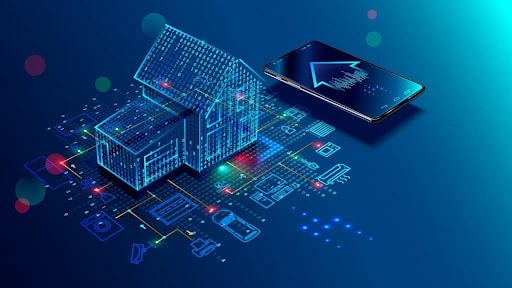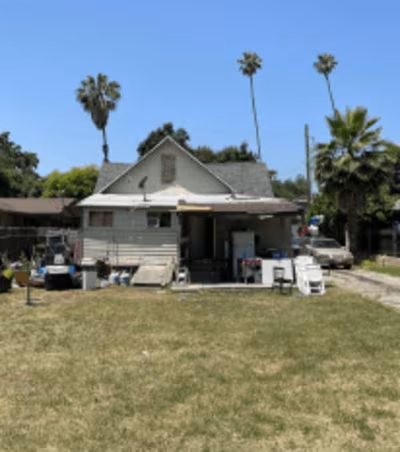Proptech And The Future Of Real Estate
Like this project
Posted Jun 6, 2024
I authored an in-depth article titled "Proptech and the Future of Real Estate," aimed at real estate professionals, investors, and tech enthusiasts.
Likes
0
Views
11

The expansion of the real estate sector, particularly in the United States, has led people to look for new approaches and alternatives to see how they can effectively address the issues in real estate. Today, we observe trends in how technology is enhancing our lives and various sectors of the economy, including real estate, thanks to what is known as "Proptech."
The COVID-19 pandemic was also a significant factor in the development of the real estate sector, as it led to the development of technologies that give real estate agents a competitive advantage, enhance and personalize the buying experience, and enable quicker and easier transactions, all of which have a positive impact on the sector's expansion.
A study from Statista also reveals that 6.9 million residences were bought and sold in the U.S. due to this technology. This is a significant change coming into the industry, but before we dive into that, we will look at what proptech is all about.
What Is Proptech?
Proptech, which stands for Property Technology or Real Estate Technology, refers to all the digital tools, websites, applications, and other resources real estate professionals utilize to enhance purchasing, selling, marketing, and other real estate-related operations.
When computers were introduced in 1980, real estate accounting saw its first technological improvements. Since then, the term "proptech" has expanded to encompass any change we see in real estate to help with real estate demands, including smart contracts, marketplaces, IoT home gadgets, etc.
There are three categories of proptech: the sharing economy, smart building tech, and real estate FinTech.
• FinTech for real estate; gives finance and real estate knowledge. Helping to keep track of and manage the finances for many properties. Similar to our banking apps that allow you to pay friends. But this time, it aids first-time homebuyers in requesting a mortgage.
• Smart building technology; makes it easier to operate and manage real estate assets for intelligent buildings. This includes tools that offer data on a building's and city's performance, including online databases that monitor urban growth to assist real estate corporations in identifying expanding markets.
• Shared economy tools; are a broad category of technologies that rely on data from various sources about the real estate market. Tools like property management software assist landlords by streamlining the rental application process and enabling existing tenants to make payments.
History Of Proptech
These three eras, Proptech 1.0, Proptech 2.0, and Proptech 3.0, make up Proptech's evolution
Proptech 1.0: The introduction of the personal computer (PC) in the 1980s marks the beginning of technology's potential in the real estate industry. At that time, numerous firms offering property market analytics were founded. More data was generated, and internet traffic benefited businesses with more robust financials. Autodesk was introduced during the 20-year reign of proptech 1.0, which is essential to the ConTech industry. Then, in 2000, the dot-com bubble ended, forcing several large real estate companies to migrate their residential markets online and launch businesses like Zillow, Airbnb, Rightmove, etc. This led to the subsequent proptech 2.0
Proptech 2.0: the "cloud revolution" era, is led by startups that advance online services, networking, and property management, with the aid of the internet, where they discovered the possibilities of online real estate marketing. Enterprises started to invest more in web-based systems that could be accessed 24/7 through their website, enabling real estate businesses to expand and run at scale. Then, some new features were added to agency-side systems that could deliver for web-connected companies large and small, laying the groundwork for proptech 3.0 in 2008. These features included emailing clients, automated workflow, electronic signature, etc.
Proptech 3.0: the era of "mobile technology," began in 2007 with the introduction of the iPhone and the conversion of the Motorola RAZR phone's awkward button and poor user interface into a "dark screen touch." This allowed people to carry the "cloud revolution" of proptech 2.0 in their pockets and have access to the data that businesses store and manage for them. Businesses like Zillow, Ascendix, Pacaso, HomeViews, and HoloBuilder, among others, are tech real estate companies that give players in the real estate sector the opportunity to use proptech to ease their work and serve them better.
How It Has Changed The Real Estate Industry
Almost all players in the real estate sector, including landlords, tenants, investors, brokers, and rental agencies, have seen a change in their everyday activities due to proptech disruption. Let's look at some modifications.
• For brokers,
It provides accessible data collection to assess the development, investment, leasing, buying, and selling processes
Automation of paperwork and cost reduction to simplify your brokerage back-office operations and free up lots of time and resources for more crucial tasks like market research, customer communication, and deal closing.
We initiate digital contracting and secure remote transactions for a quicker and simpler purchasing process.
Direct digital engagement and lessening of physical contact to reduce physical contact with both people and objects. Which is still effective because of the Covid-19 pandemic
• For landlords and tenants,
They offer thorough 24/7 analysis of how tenants use the space, made possible by intelligent devices and sensors (IoT).
We provide an effective communication system with all parties involved, including tenants, repairers, maintenance teams, etc.
With virtual reality, there are no geographical limitations. Property owners and tenants can now conduct home inspections, house tours, and viewings online while remaining in the comfort of their own homes.
• For investors,
It offers precise construction planning to lessen, if not wholly eliminate, the possibility of costly errors or misses, which could cost millions of dollars.
It offers a better system for conducting market research to keep track of development, financing, leasing, purchasing, and selling opportunities.
Safe contracts without a "middle man" who might have had conflicting interests in the purchase and sale of real estate
Future Of Real Estate Through The Evolution Of Proptech

Without question, Proptech has a bright future because it has already begun its influence in the real estate industry
We have transformed how we purchase, sell, and rent homes thanks to Blockchain technology and smart contracts, making it simpler to trace ownership and transfer of assets.
Additionally, with the internet of things (IoT), everything is connected and controlled from a mobile device anywhere, including your fridge, TV, thermostat, and light bulb.
Last but not least, augmented and virtual reality alter how we experience real estate. Now, we can stroll across the property and view it as it would appear in real life.
A Note For Us
The value and performance of real estate and the entire property management ecosystem have improved due to various proptech tools, procedures, and tactics. While it seems like a new trend, Real Estate Technology is anticipated to increase from $18.2 billion in 2022 to $86.5 billion in 2032, according to Future Market Insights.
Even if the industry were to face challenges like; corporate liability, high maintenance, implementation cost, etc., that wouldn't stop it because Proptech is here to stay, and there is no doubt that the real estate market will never remain the same.





